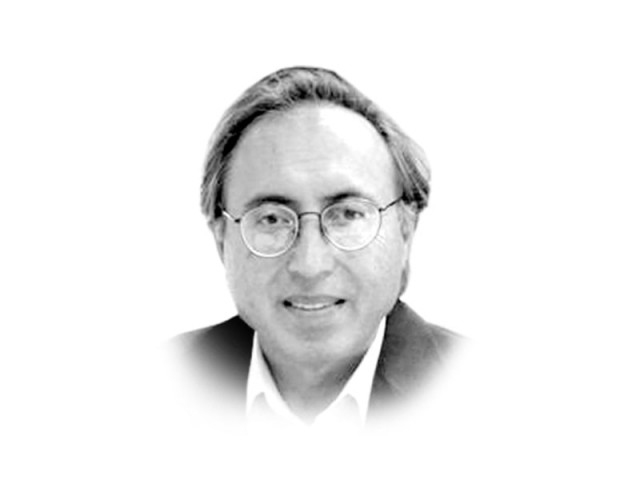Saving democracy
I have always alluded to is that most of our legislators have only a skin-deep commitment to democracy.

I am sure that many of the legislators in Pakistan know quite well what the essence of democracy is, but they do not feel pushed by society to take steps make it meaningful. There is a kind of inborn arrogance in the political executive. The men and women in the executive brook no reasonable checks or restraint over what they wish to do with their power. This arrogance has led to the constitutional crisis we face in Pakistan today. Let me explain this point a little further and suggest a remedy, if anyone is willing to take it.
Two issues are central to Pakistan’s democratic troubles. One is the tendency of the political executive (the prime minister plus the cabinet) to be dictatorial. There is abundant evidence of this in the functioning of the present executive and its predecessors. A dictatorial bent can become a structural issue in a parliamentary democracy, since the executive is supported by a majority inside parliament. Look at how many ministers, state ministers, advisers and parliamentary secretaries we have both, at the federal as well as provincial levels, living on public expenses. This seems to function more as a mafia than a democratic system. Here is a question to test this hypothesis: has any member of the ruling groups questioned corruption in high places or illegal appointments by the government?
The second issue is that political parties that look more like incorporated family businesses have a single dominant person on the top who acts like a political patriarch. He knows which candidates to nominate for which electoral slots to, have his prime minister, if he chooses to go for some other option, and all other important positions in the political executive, bureaucracy and autonomous bodies under the control of the government have his signature of nod. With the patriarch as the centre of power, the parliament and assemblies have lost sovereignty. In the name of assemblies, the political patriarchs, or a core committee or sort of an oligarchy composed of close friends and trusted political persons and families, exercise sovereignty.
Over the years, we have observed this pattern repeating itself. Those who have raised their voices in their respective parties or with their political executives were thrown out like welted autumn leaves. For these reasons, public trust in democracy has declined. But this is the only political course that a country like Pakistan must ensure for its stability and future growth. My belief is that the democratic path is a self-correcting path.
We must take three steps to correct this path before we get lost once again. First, all decisions of the Supreme Court must be implemented in good faith and without any reservations. Second, institutions like the FIA and NAB that are only protecting the political executives and their allies should be made truly non-partisan and independent. Finally, to defuse the current stand-offs, we need a call for fresh elections. The question is whether this will be possible. The pressure to do this from within society — media, civil society and opposition parties — is, however, very much there.
Published in The Express Tribune, December 26th, 2011.













COMMENTS
Comments are moderated and generally will be posted if they are on-topic and not abusive.
For more information, please see our Comments FAQ